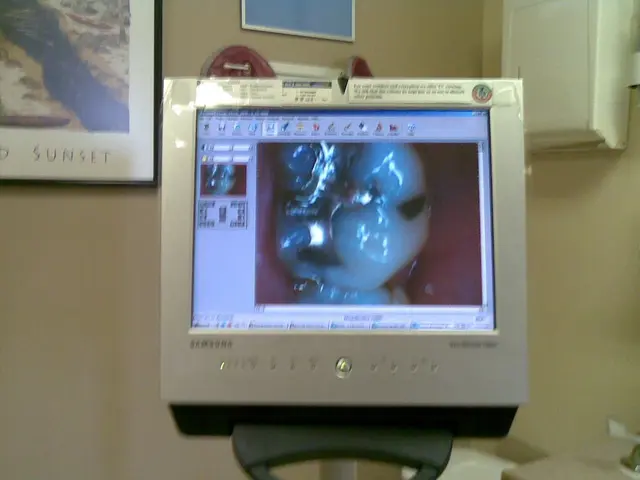Moderna and OpenAI Join Forces to Revolutionize Medicine
Moderna CEO Advocates for Employees to Utilize ChatGPT a Minimum of Twenty Times Daily
ChatGPT, the AI sensation, is no longer just a chatbot; it's now a game-changer in the world of pharmaceuticals. Moderna, a front-runner in vaccine production, has announced a partnership with OpenAI to integrate AI technology across its business operations. This bold move could potentially catapult Moderna beyond its expectations of launching 15 new products in the next five years.
Stephane Bancel, Moderna's CEO, is lean and enthusiastic about this alliance. In a statement reminiscent of the '80s digital revolution, Bancel proclaimed, "Just like the introduction of the personal computer changed the way we work and live, AI is poised to completely transform our daily lives - and OpenAI is leading the charge!"
The collaboration between Moderna and OpenAI started in 2023 with the launch of Moderna's very own ChatGPT named mChat. Since then, Moderna has deployed hundreds of AI models, known as Generative Pre-trained Transformers (GPTs), to automate its business processes. These models have been fine-tuned for specific tasks such as clinical trial dosage selection.
So, what's the big deal? Well, these AI tools could streamline data analysis, enhance web searching, and potentially revolutionize operational efficiency and drug development processes. By automating mundane tasks, Moderna could save valuable time and resources, enabling it to focus more on new product development.
Moreover, AI could provide Moderna with deeper data insights, which might accelerate the development of new drugs and boost the chances of meeting aggressive product launch targets. Lastly, this partnership could spur operational innovation within Moderna, optimizing its development pipeline and increasing its ability to meet ambitious launch plans.
However, the direct connection between this partnership and the specific goal of launching 15 new products remains a bit hazy. More specific details on how Moderna is leveraging OpenAI's tools to achieve this goal are eagerly awaited.
But one thing is clear; Moderna is taking a big leap towards becoming an AI-empowered pharmaceutical giant, and Moderna's employees are excited to join the revolution. As Sam Altman, OpenAI's CEO, put it, "Moderna is leading the way by empowering its employees to use AI to tackle complex problems. We're excited to continue collaborating with Moderna to bring a new generation of medicines to patients in need."
This article originally appeared on Quartz.
[1] This partnership aims to enhance Moderna's capabilities in areas such as data analysis, web searching, and operational efficiency, potentially improving drug development processes. While there is no direct information on how this partnership specifically impacts Moderna's goal to launch 15 new products in the next five years, it can potentially accelerate and optimize aspects of Moderna's research and development pipeline.
- The AI technology integration, through Moderna's partnership with OpenAI, aims to improve Moderna's capabilities in data analysis, web searching, and operational efficiency, thereby potentially revolutionizing drug development processes.
- The alliance between Moderna and OpenAI could spur operational innovation within Moderna, optimizing its development pipeline and increasing its ability to meet ambitious launch plans, such as the goal of launching 15 new products in the next five years.
- By 2023, Moderna launched its AI-powered chatbot, mChat, marking the beginning of its collaboration with OpenAI, focusing on deploying AI models known as Generative Pre-trained Transformers (GPTs) to automate business processes.
- As revealed by OpenAI's CEO, Sam Altman, this partnership will help Moderna's employees to use AI to tackle complex problems, potentially leading to a new generation of medicines to better serve patients in need.







